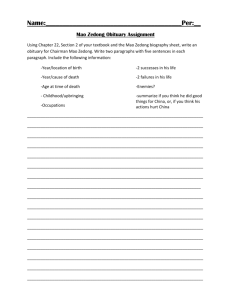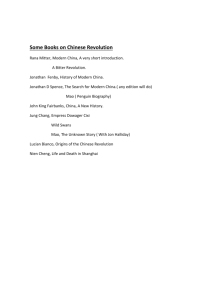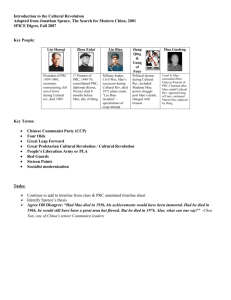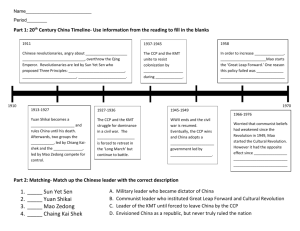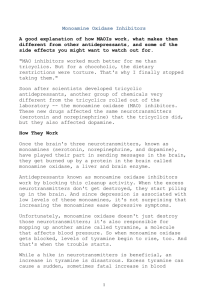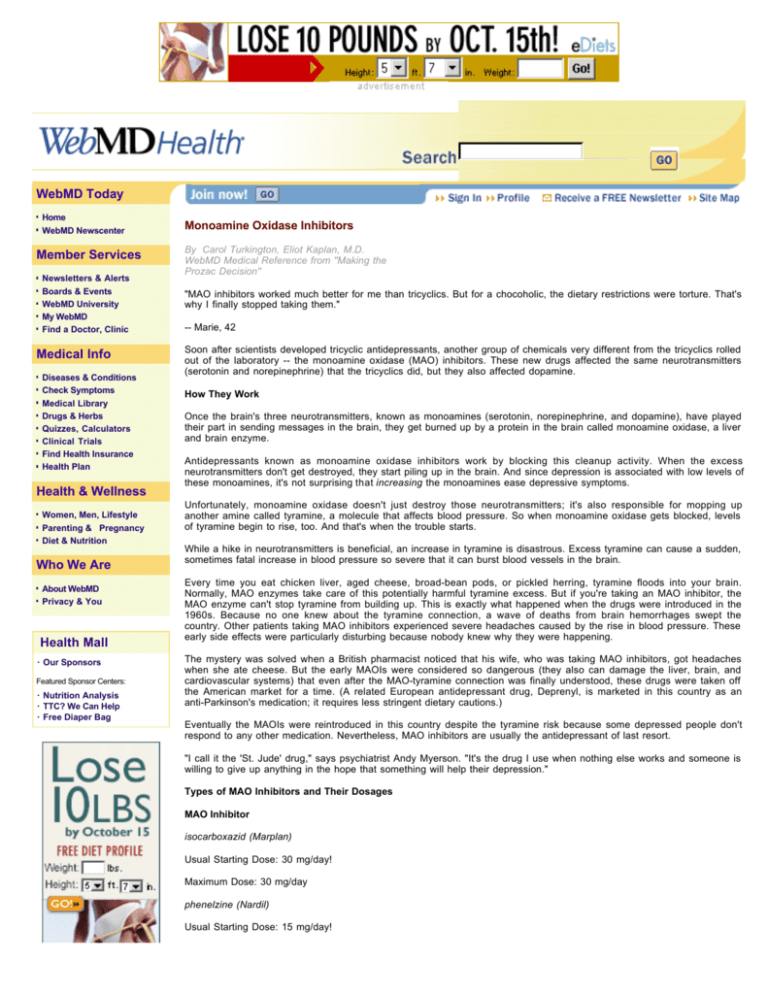
WebMD Today
Home
WebMD Newscenter
Member Services
Newsletters & Alerts
Boards & Events
WebMD University
My WebMD
Find a Doctor, Clinic
Medical Info
Diseases & Conditions
Check Symptoms
Medical Library
Drugs & Herbs
Quizzes, Calculators
Clinical Trials
Find Health Insurance
Health Plan
Health & Wellness
Women, Men, Lifestyle
Parenting & Pregnancy
Diet & Nutrition
Who We Are
About WebMD
Privacy & You
Health Mall
· Our Sponsors
Featured Sponsor Centers:
· Nutrition Analysis
· TTC? We Can Help
· Free Diaper Bag
Monoamine Oxidase Inhibitors
By Carol Turkington, Eliot Kaplan, M.D.
WebMD Medical Reference from "Making the
Prozac Decision"
"MAO inhibitors worked much better for me than tricyclics. But for a chocoholic, the dietary restrictions were torture. That's
why I finally stopped taking them."
-- Marie, 42
Soon after scientists developed tricyclic antidepressants, another group of chemicals very different from the tricyclics rolled
out of the laboratory -- the monoamine oxidase (MAO) inhibitors. These new drugs affected the same neurotransmitters
(serotonin and norepinephrine) that the tricyclics did, but they also affected dopamine.
How They Work
Once the brain's three neurotransmitters, known as monoamines (serotonin, norepinephrine, and dopamine), have played
their part in sending messages in the brain, they get burned up by a protein in the brain called monoamine oxidase, a liver
and brain enzyme.
Antidepressants known as monoamine oxidase inhibitors work by blocking this cleanup activity. When the excess
neurotransmitters don't get destroyed, they start piling up in the brain. And since depression is associated with low levels of
these monoamines, it's not surprising that increasing the monoamines ease depressive symptoms.
Unfortunately, monoamine oxidase doesn't just destroy those neurotransmitters; it's also responsible for mopping up
another amine called tyramine, a molecule that affects blood pressure. So when monoamine oxidase gets blocked, levels
of tyramine begin to rise, too. And that's when the trouble starts.
While a hike in neurotransmitters is beneficial, an increase in tyramine is disastrous. Excess tyramine can cause a sudden,
sometimes fatal increase in blood pressure so severe that it can burst blood vessels in the brain.
Every time you eat chicken liver, aged cheese, broad-bean pods, or pickled herring, tyramine floods into your brain.
Normally, MAO enzymes take care of this potentially harmful tyramine excess. But if you're taking an MAO inhibitor, the
MAO enzyme can't stop tyramine from building up. This is exactly what happened when the drugs were introduced in the
1960s. Because no one knew about the tyramine connection, a wave of deaths from brain hemorrhages swept the
country. Other patients taking MAO inhibitors experienced severe headaches caused by the rise in blood pressure. These
early side effects were particularly disturbing because nobody knew why they were happening.
The mystery was solved when a British pharmacist noticed that his wife, who was taking MAO inhibitors, got headaches
when she ate cheese. But the early MAOIs were considered so dangerous (they also can damage the liver, brain, and
cardiovascular systems) that even after the MAO-tyramine connection was finally understood, these drugs were taken off
the American market for a time. (A related European antidepressant drug, Deprenyl, is marketed in this country as an
anti-Parkinson's medication; it requires less stringent dietary cautions.)
Eventually the MAOIs were reintroduced in this country despite the tyramine risk because some depressed people don't
respond to any other medication. Nevertheless, MAO inhibitors are usually the antidepressant of last resort.
"I call it the 'St. Jude' drug," says psychiatrist Andy Myerson. "It's the drug I use when nothing else works and someone is
willing to give up anything in the hope that something will help their depression."
Types of MAO Inhibitors and Their Dosages
MAO Inhibitor
isocarboxazid (Marplan)
Usual Starting Dose: 30 mg/day!
Maximum Dose: 30 mg/day
phenelzine (Nardil)
Usual Starting Dose: 15 mg/day!
Maximum Dose: 60 mg/day
tranylcypromine (Parnate)
Usual Starting Dose: 30 mg/day
Maximum Dose: 60 mg/day
Prime Candidates
If you're very vulnerable to depression but don't suffer from the classic symptoms of major depression, MAOIs could be for
you. They are especially good if you seem mildly depressed, if you become depressed more gradually, or if your primary
complaints are boredom and apathy.
If you have atypical depression -- you're sensitive to rejection, overeat and oversleep, and react strongly to your
environment -- you may respond very well to MAOIs, which can reduce the sensitivity that causes you to feel so easily hurt
or rejected. Others who tend to respond very well to MAOIs can feel quite depressed, but they're able to surface from the
morass of their depression from time to time and experience pleasure before plunging into depression again.
The MAOI phenelzine (Nardil) has been found specifically to help patients characterized as atypical. These patients often
have mixed anxiety and depression, or depression with phobia or hypochondriacal features. There is less evidence that
Nardil may be effective in severely depressed patients. Tranylcypromine (Parnate) is a good choice if you have major
depression without melancholia.
Who Shouldn't Take MAOIs
If you've got serious heart problems, epilepsy, bronchitis, asthma, or high blood pressure, or if you resist following a
stringent diet, MAOIs aren't for you. In addition, isocarboxazid (Marplan) may be too stimulating if you're hyperactive,
agitated, or schizophrenic. Studies suggest that Nardil may not be as effective if you are severely depressed. Patients
should wait at least two weeks when being transferred to Parnate from another MAO inhibitor.
Pros and Cons
One of the big problems with MAO inhibitors is that they make you feel drugged and sluggish. "I didn't respond to tricyclics
at all five years ago," says Karen, a New Jersey graduate student who has been chronically depressed most of her life.
"When I was switched to an MAOI, I responded very well. But I couldn't take the diet. After I finally went off the drug, my
friends told me I was always in a daze while I was taking MAOIs, but I wasn't aware of that at the time. I was switched to
Prozac four years ago, and I've been taking that ever since." Patients often look dazed or even robotic, much the way
Karen had appeared to her friends. But what people really hate are the lists of dietary restrictions and potential side effects.
Dietary Restrictions
Don't eat or drink any of the following when taking MAOIs unless your doctor advises otherwise:
aged foods
alcoholic beverages (especially chianti, sherry, liqueurs, and beer)
alcohol-free or reduced-alcohol beer or wine
anchovies
bologna, pepperoni, salami, summer sausage, or any fermented sausage
caviar
cheeses (especially strong or aged varieties), except for cottage and cream cheese
chicken livers
fermented foods
figs (canned)
fruit: raisins, bananas (or any overripe fruit)
meat prepared with tenderizers; unfresh meat; meat extracts
smoked or pickled meat, poultry, or fish
soy sauce
Foods you can eat in moderation:
avocados
beer
caffeine (including chocolate, coffee, tea, cola)
chocolate
raspberries
sauerkraut
soup (canned or powdered)
sour cream
yogurt
"A lot of patients are resentful about the diet they have to follow," explains Dr. Myerson. "They tend to blame the doctor
when they can't eat their favorite foods, and many people simply won't follow the diet." Other mental health experts point
out that MAO inhibitors often interfere with the relationship between doctor and patient, because people feel so resentful
about their side effects and diet that they don't want to talk to their doctor during therapy.
Their relatively risky profile makes them a poor choice for potentially suicidal patients who might intentionally take an
overdose. At very low doses, the MAOIs can have toxic effects on the heart, unlike Prozac, which is not considered toxic
even at very high doses. Studies have shown that MAOIs are not associated at all with suicide in nonsuicidal patients, as
opposed to most other antidepressants. In a 1991 Harvard University study of 1,017 depressed people, 63 nonsuicidal
patients took an MAOI and none became suicidal.
On the other hand, there's no doubt that for a certain subset of people, the MAO inhibitors work better than any other
antidepressant.
"I've seen a few miracle cures with these drugs," one psychiatrist noted. "And they're particularly good if people suffer from
panic attacks in addition to depression."
Furthermore, if you have hypertension or heart problems, the MAOIs might be for you because at therapeutic doses, they
can lower blood pressure. In contrast to the tricyclic antidepressants, MAO inhibitors have little negative effect on heart rate.
If you were having problems with chest pain (angina) before taking MAO inhibitors, you may find that you're feeling much
better now that you're taking this drug. Whatever you do, don't start running a few extra miles or working out a lot more at
the gym without first discussing it with your doctor! Too much activity can bring on another attack of chest pain.
Before Taking MAOIs
Your doctor will probably quiz you about a range of medical conditions before prescribing an MAO inhibitor. It's especially
important to tell your doctor if you have frequent headaches or chest pain. Since a severe headache or chest pain during
MAOI therapy is the primary warning sign of a serious spike in blood pressure, anyone who normally gets severe
headaches might overlook an important warning sign.
Your doctor will want to know if you have diabetes mellitus (you may need to change your insulin level) or an alcohol
problem, since drinking while taking MAOIs may cause serious side effects.
Also tell your doctor if you have heart or blood-vessel disease, liver or kidney problems, Parkinson's disease, or an
overactive thyroid.
Side Effects
The one thing you've got to watch out for with these drugs is that sudden spike in blood pressure called a "hypertensive
crisis" (also called the "cheese reaction") that we discussed at the beginning of this article. As long as you follow a strict
tyramine-free diet (see "Dietary Restrictions" above), you should be able to avoid the risk.
Diet-Related Side Effects. Your doctor most assuredly will give you a list of prohibited foods. It's important to remember
that the tyramine found in foods -- even a type of food that can be eaten in small quantities -- adds up. So while it's okay to
eat small amounts of sour cream or artichokes, it would not be acceptable to eat a meal of sauerkraut with a sauce of
yogurt and sour cream, followed by a dessert of raspberries and chocolate together with a cup of coffee.
It's also important to understand that while you may get away with eating a forbidden food once or twice, it may cause a
reaction the third or fourth time. This is because a particular food doesn't always contain the same amount of tyramine.
The symptoms are as follows: severe headache radiating to the front of the head, stiff and/or sore neck, nausea and
vomiting, sensitivity to light, dilated pupils, sweating (sometimes with fever or with cold, clammy skin), chest pain, or heart
palpitations. A blood pressure rise usually occurs within several hours after taking the drug. Stop taking MAO inhibitors
immediately if you get a severe headache or palpitations, then call your doctor.
Your doctor can give you a drug called Procardia as an emergency measure if you accidentally eat something that causes
a reaction.
There is also a range of less serious side effects that accompany the MAOIs. Like all antidepressants, the MAOIs are
capable of inducing a manic state in people who are manic-depressive. Like tricyclics, MAOIs have been reported to cause
memory problems. Other possible side effects include:
Fainting and/or Dizziness. If you're taking an MAOI, you may feel a bit dizzy or faint if you stand up quickly. It's a common
side effect with these drugs and is more annoying than anything else. It can lead to giddiness, muscular weakness,
nausea, perspiration, hyperventilation, and sometimes confusion. If this happens to you, try standing up more slowly. (You
may notice that you have a particular problem when you get up in the morning; this is because blood pressure is lowest
then. If this happens, sit on the edge of the bed, dangling your feet for a minute or two, and then rise slowly.)
This problem often fades away with time. If it doesn't, you can try exercising your leg muscles to prevent blood from pooling
in your legs. It may also help to wear support hosiery and drink plenty of fluids.
If the problem gets worse, ask your doctor if you can divide your medication into several doses to be taken during the day.
Try taking the medicine after meals, and take salt tablets.
Drowsiness. Because MAO inhibitors may cause blurred vision, drowsiness, or a "drugged" feeling, be sure you know how
you react to this medicine before you do anything that could be dangerous if your alertness or vision were affected, such
as driving or operating machinery.
Diabetes. If you're a diabetic, MAO inhibitors may affect your blood sugar levels. While using these antidepressants, be
very careful when you're testing the sugar levels in your blood or urine. Consult with your doctor if you have any questions
about your diabetic condition.
Sexual Problems. Like many other antidepressants, MAOIs can cause a range of sexual problems. Of these, delayed
orgasm is the most common (it is also very likely with Prozac). However, many people note that sexual problems eventually
disappear.
Surgery. Be sure to tell your doctor or dentist that you're taking MAO inhibitors before any kind of surgery, dental treatment
or emergency treatment -- even if you stopped taking the drug up to two weeks ago. The anesthesia combined with the
MAOIs can cause a drop in blood pressure or other problems. You may want to carry an ID card noting that you're taking
this medicine. If you're taking these drugs, you shouldn't agree to any elective surgery requiring general anesthesia.
Weight Gain. MAOIs are associated with some degree of weight gain. (Prozac and some other SSRIs do not seem to
cause this side effect.)
General Side Effects of all MAO Inhibitors
Stop taking this drug and seek immediate help for:
unusually high blood pressure
sever chest pain
severe headache
increased sweating
stiff or sore neck
fast or slow heartbeat
increased sensitivity to light
nausea and vomiting
Check with your doctor if you have:
severe diziness or light-headedness, especially when arising from a sitting or lying position
diarrhea
pounding heart
swelling of feet and/or lower legs
unusual excitement or nervousness
dark urine
fever
skin rash
slurred speech
sore throat
staggering walk
yellow eyes and/or skin
Mild side effects not usually requiring medical attention:
blurry vision
decreased sexual ability
urinary problems
drowsiness
mild headache
weight gain
increased sweating
restlessness
shakiness or trembling
fatigue and weakness
sleeping problems
chills
constipation
decreased appetite
dry mouth
muscle twitching during sleep
increased appetite and mild dizziness or light-headedness
Drug Interactions
While aspirin, Tylenol (plain), Motrin, or antibiotics are safe when combined with MAOIs, you should check with your doctor
before taking any other medicine.
There have been reports of serious -- sometimes fatal -- reactions when an MAO inhibitor is combined with Prozac. These
reactions include high blood pressure, nausea and vomiting, fever, rigidity, rapidly fluctuating vital signs, shock, and mental
changes. You shouldn't take Prozac until two weeks after stopping therapy with an MAO inhibitor. Even more important,
because Prozac takes a long time to be eliminated from the body, you should wait at least five weeks after stopping Prozac
before you start taking an MAO inhibitor.
Besides Prozac, there are some other medications that can provoke a hypertensive reaction similar to the cheese reaction
(but not involving tyramine). Of these, the most dangerous are nonprescription cold, cough, or sinus medications such as
Contac or Dristan; most of them contain decongestants (like pseudoephedrine). Other drugs on the danger list include
weight-control pills and asthma inhalants. Illegal drugs like cocaine and amphetamines also cause this problem.
Most of the medications that cause problems are stimulants that can trigger an increase in the release of norepinephrine,
which raises blood pressure. Since MAO metabolizes norepinephrine, people taking MAOIs have higher amounts of
norepinephrine to be released, which raises the blood level of norepinephrine even more.
Drug Interactions and MAO Inhibitors
Some drugs should never be combined with MAO inhibitors, while others may be used if your doctor adjusts your dosage.
It's extremely important for you to tell your doctor if you are taking any of the following drugs:
Allergy medicines (including nose drops or sprays)
Appetite suppressants
Antihistamines (Actifed DM, Benadryl, Benylin, Chlor-Trimeton, Compoz, etc.)
Antipsychotics
Antivert
Asthma drugs
Atrovent
Blood-pressure medicine
Bucladin
BuSpar (may cause high blood pressure)
Cocaine (may severely increase blood pressure)
Cold medicines
Demerol (deaths have occurred when combining MAOIs and a single dose of meperidine)
Dextromethorphan (may cause brief episodes of psychosis or bizarre behavior)
Ditropan
Dopar, Larodopa
Flexeril
Insulin (MAOIs may change amount of insulin needed)
Ludiomil
Marezine
Monoamine oxidase inhibitors (other)
Norflex
Norpace
Phenergan
Pronestyl
Prozac (may cause high fever, rigidity, high blood pressure, mental changes, confusion and hypomania; at least five
weeks should pass between stopping Prozac and starting an MAOI)
Quinidex
Ritalin
Sinus medicine
Symmetrel
Tegretol (may increase seizures)
Temaril (may increase chance of side effects)
Tricyclic antidepressants (using these drugs within two weeks of taking MAOIs may cause serious side effects
including sudden fever, extremely high blood pressure, convulsions, and death)
Tryptophan (may cause disorientation, confusion, amnesia, delirium agitation, hypomanic signs, shivering)
Urispas
Wellbutrin (allow at least two weeks between stopping Wellbutrin and starting MAOIs)
The opiate narcotics Demerol (meperidine) and dextromethorphan (found in cough or cold medicines usually labeled "DM")
should also be avoided. And Parnate can interfere with the benefit of guanethidine, methyldopa, reserpine, and dopamine.
Nardil shouldn't be taken with dopamine, epinephrine and norepinephrine, methyldopa, L-dopa, L-tryptophan, L-tyrosine or
phenylalanine (contained in aspartame, also known as NutraSweet).
Overdose
The MAO inhibitors are somewhat more dangerous drugs than other antidepressants when taken in excessive amounts -far more so than newer drugs such as Prozac, Zoloft or Desyrel. Symptoms of overdose include severe anxiety, confusion,
convulsions or seizures, cool clammy skin, severe dizziness, severe drowsiness, fast and irregular pulse, fever,
hallucinations, severe headache, high or low blood pressure, muscle stiffness, breathing problems, severe sleeping
problems, or unusual irritability.
Tolerance
Some people develop a tolerance to MAO inhibitors. This could mean that the drug will work for you at first, but you could
suddenly become depressed again in the middle of treatment. This sort of reaction is particularly disturbing because it sets
off a plummeting depression that may not respond to any other antidepressant. Oddly, if you develop tolerance to an
MAOI, the best solution may be to switch to another antidepressant for a few weeks, and then start taking the same MAOI
again. This way, the drug may regain its effectiveness.
Withdrawal
Don't suddenly stop taking this medicine on your own. Your doctor will probably ask you to gradually taper off your dosage
to avoid the risk of side effects. Once you do stop taking the drug, remember that you must continue to observe all of the
dietary restrictions for at least two weeks, avoiding all of the same foods and beverages that you did when you were taking
MAO inhibitors.
Pregnancy and/or Breast-feeding
Because Parnate (and most likely Marplan and Nardil) cross the placenta, you and your doctor should weigh the need for
this drug against the risks to your unborn child. Nardil has been shown to have adverse effects in pregnant mice; in doses
well above the human dose it has caused decreases in the number of healthy offspring. While researchers don't know for
sure whether antidepressants cause birth defects in humans, women who take any type of antidepressant have about
twice the rate of miscarriages during the first trimester of pregnancy. As with most antidepressants, safe use of MAO
inhibitors during pregnancy hasn't been established, but one limited study in humans did suggest an increased risk of birth
defects when MAOIs are taken during the first trimester.
In animals, MAO inhibitors slow the growth of newborns and make them more excitable when their mothers take very large
doses during pregnancy.
When it comes to breast-feeding, Parnate is passed into breast milk, but it is not known if this is true of Marplan and Nardil.
There haven't been any reports of problems in nursing infants whose mothers have taken MAO inhibitors.
MAOIs and Children
Because MAOIs are among the most risky of antidepressants, most experts don't recommend giving them to children under
age 16. Animal studies indicate that these drugs may slow growth in the young.
MAOIs and the Elderly
Older patients are usually more sensitive than younger adults to the MAO inhibitors, and they may be more likely to
experience dizziness or light-headedness. Because of the danger of an abrupt increase in high blood pressure
(hypertensive crisis), the MAO inhibitors are often not prescribed for people over age 60, or for those with heart or
blood-vessel diseases.
Parnate should not be routinely given to anyone over age 60 because of the possibility of damaged blood vessels and the
risk of sudden high blood pressure; you should wait at least two weeks before being transferred from Parnate to another
MAOI. In this event, the starting dose should be half the normal starting dose for the first week of therapy.
"Copyright © 1997 by the RGA Publishing Group. From Making the Prozac Decision: A Guide to Antidepressants, by arrangement with
RGA Publishing, Inc."
!
Medscape for Physicians | Medscape for Healthcare Professionals
Corporate | Contact Us
Terms and Conditions | Privacy Policy and Agreement
©1996-2003 WebMD Inc. All rights reserved.




